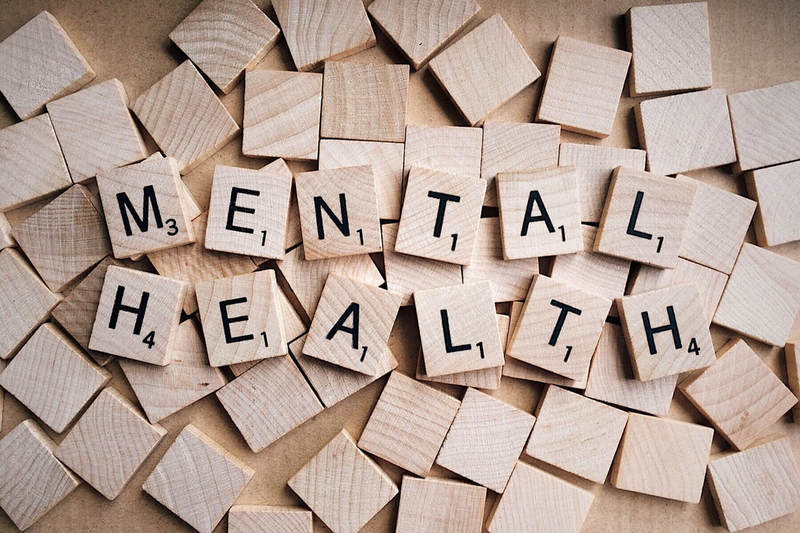How Smartphones Eat Away at Sleep
Mental health issues are becoming increasingly prevalent in society for both adults and children. Recent data from the Healthy People 2020 initiative reported that mental health and suicide rates are worsening in America each year, yet despite this concrete data, there is an expectation that people should keep quiet about their mental health conditions. Where does this stigma against mental health originate from? After interviewing university students, some answers can be found on college campuses.
The nature of universities is a highly competitive one among all scholarly fields but most especially within STEM departments. This nature is heightened to a greater extent at large public schools such as the University of California, Los Angeles where academic success is confined to being judged and labeled solely on one’s academic numbers. This idea inevitably promotes a culture of perfection, which is a key factor contributing to mental health disorders. Carly Stewart, a dual degree graduate student in the departments of Public Health and Social Work, believes that grad-school magnifies these effects. Master’s degree and PhD pursuers are expected not only to maintain straight-As but also to publish frequently, obtain prestigious internships, attend conferences, and maintain a social sphere. She says, “When students talk about [their mental health problems], they get turned down because they’re no longer this epitome of perfection.” This is the culprit of the issue. While there are psychological counseling services offered on campus, the degree to which they are promoted is minimal. Back in the 1970s and 1980s, the decades that many college professors grew up in, mental health issues were not socially accepted. While this is one factor that might explain the minimal promotion of counseling services at universities, it is important to understand that this is a campus-wide issue. The entire college administrative team should work together with professors towards eliminating the mental-health taboo and directly advocating for the use of psychological counseling when needed. Unfortunately, the stigmas that were prevalent decades ago can still be seen today.
The nature of universities is a highly competitive one among all scholarly fields but most especially within STEM departments. This nature is heightened to a greater extent at large public schools such as the University of California, Los Angeles where academic success is confined to being judged and labeled solely on one’s academic numbers. This idea inevitably promotes a culture of perfection, which is a key factor contributing to mental health disorders. Carly Stewart, a dual degree graduate student in the departments of Public Health and Social Work, believes that grad-school magnifies these effects. Master’s degree and PhD pursuers are expected not only to maintain straight-As but also to publish frequently, obtain prestigious internships, attend conferences, and maintain a social sphere. She says, “When students talk about [their mental health problems], they get turned down because they’re no longer this epitome of perfection.” This is the culprit of the issue. While there are psychological counseling services offered on campus, the degree to which they are promoted is minimal. Back in the 1970s and 1980s, the decades that many college professors grew up in, mental health issues were not socially accepted. While this is one factor that might explain the minimal promotion of counseling services at universities, it is important to understand that this is a campus-wide issue. The entire college administrative team should work together with professors towards eliminating the mental-health taboo and directly advocating for the use of psychological counseling when needed. Unfortunately, the stigmas that were prevalent decades ago can still be seen today.

The bedroom is the possibly the easiest place tOmega-3 fatty acids are essential in diets as the human body cannot produce them on its own. Though getting a natural source of omega-3s from fish is ideal, using supplements is also a good way to meet the recommendation for dietary omega-3. These oils have many beneficial effects, such as reducing blood fat levels, joint pain, inflammation, and memory loss linked to aging.
o spend more time on smart electronic devices.
The data used in Twenge’s study was collected from U.S. adolescents between 2009 and 2015, and many other factors were accounted for to analyze if there could be other correlations to the lack of sleep. Although non-screen activities such as homework or working for pay may have had an effect, the SDSU team did not find any statistical significance. Not surprisingly, a high percentage of adolescents reporting lack of sleep have skyrocketed: nearly 50% of surveyors using more than five hours a day of electronics.
Shortened sleep duration has been found to be a health risk. It has been associated with many major health problems such as obesity, diabetes, cardiovascular diseases, and other varieties of psychological and behavioral problems. The emitted light from screens may displace or delay sleep time by allowing arousal and, consequently, affect the circadian rhythm. A different study also from Twenge suggested that this setting could ultimately lead to depressive symptoms and suicide-related outcomes.
With the oversaturation of smartphones in the United States market and their popular usage, decreasing screen time is not an easy task. However, the study suggests public health interventions may be necessary as it would be beneficial to adolescent health. In addition, personal control would be an important factor that to mitigate the effects of screen time on sleep duration.
Shortened sleep duration has been found to be a health risk. It has been associated with many major health problems such as obesity, diabetes, cardiovascular diseases, and other varieties of psychological and behavioral problems. The emitted light from screens may displace or delay sleep time by allowing arousal and, consequently, affect the circadian rhythm. A different study also from Twenge suggested that this setting could ultimately lead to depressive symptoms and suicide-related outcomes.
With the oversaturation of smartphones in the United States market and their popular usage, decreasing screen time is not an easy task. However, the study suggests public health interventions may be necessary as it would be beneficial to adolescent health. In addition, personal control would be an important factor that to mitigate the effects of screen time on sleep duration.
Featured Image Source: Wokandapix
RELATED ARTICLES
|
Vertical Divider
|
Vertical Divider
|
Vertical Divider
|





